
Forodhani Gardens: The Heartbeat of Stone Town
Nestled along the waterfront in the historic Stone Town of Zanzibar, Forodhani Gardens is a vibrant and welcoming oasis for visitors. This lively public park is a hub of activity, bringing together locals and tourists alike to enjoy the scenic views of the Indian Ocean and the charming atmosphere of Stone Town. As the sun sets, Forodhani Gardens transforms into a bustling night market. Food stalls light up, offering a tantalizing array of local delicacies. From freshly grilled seafood to traditional Zanzibari dishes like Zanzibar pizza and sugar cane juice, there is something to satisfy every palate. The aroma of spices and the sounds of sizzling grills create an unforgettable sensory experience. Beyond its culinary delights, Forodhani Gardens also offers a glimpse into the rich history and culture of Zanzibar. The park is surrounded by historical landmarks, including the Old Fort and the House of Wonders, which are just a short stroll away. Whether you are taking a leisurely walk along the promenade, enjoying a picnic on the lush lawns, or simply soaking in the vibrant atmosphere, Forodhani Gardens is a must-visit destination for anyone exploring Stone Town.
Local tips in Forodhani Gardens
- Visit during the evening to experience the lively night market and sample local street food.
- Bring cash, as many food vendors do not accept credit cards.
- Dress modestly, as Zanzibar is a predominantly Muslim region.
- Take a walk to nearby landmarks like the Old Fort and House of Wonders for a full historical experience.
- Keep an eye on your belongings, as the area can get crowded.
Forodhani Gardens: The Heartbeat of Stone Town
Nestled along the waterfront in the historic Stone Town of Zanzibar, Forodhani Gardens is a vibrant and welcoming oasis for visitors. This lively public park is a hub of activity, bringing together locals and tourists alike to enjoy the scenic views of the Indian Ocean and the charming atmosphere of Stone Town. As the sun sets, Forodhani Gardens transforms into a bustling night market. Food stalls light up, offering a tantalizing array of local delicacies. From freshly grilled seafood to traditional Zanzibari dishes like Zanzibar pizza and sugar cane juice, there is something to satisfy every palate. The aroma of spices and the sounds of sizzling grills create an unforgettable sensory experience. Beyond its culinary delights, Forodhani Gardens also offers a glimpse into the rich history and culture of Zanzibar. The park is surrounded by historical landmarks, including the Old Fort and the House of Wonders, which are just a short stroll away. Whether you are taking a leisurely walk along the promenade, enjoying a picnic on the lush lawns, or simply soaking in the vibrant atmosphere, Forodhani Gardens is a must-visit destination for anyone exploring Stone Town.
Iconic landmarks you can’t miss
Old Fort
Explore the Old Fort of Zanzibar, a historic fortress offering breathtaking views and a glimpse into the island's rich heritage.
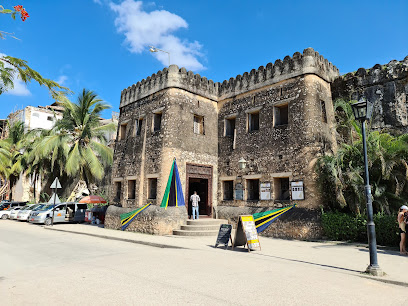
Jamhuri Gardens
Discover the beauty of nature at Jamhuri Gardens, a peaceful park in Zanzibar perfect for relaxation, picnics, and family outings.
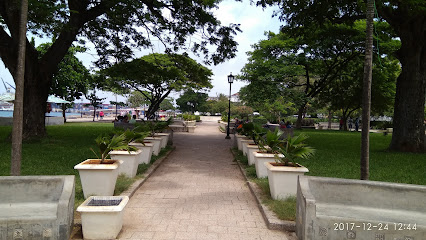
Forodhani Park, Zanzibar
Experience the vibrant flavors and rich culture of Zanzibar at Forodhani Park, the ultimate destination for street food and sunset views.
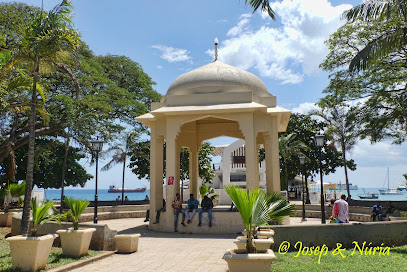
Forodhani Park Hotel
Discover the charm of Zanzibar at Forodhani Park Hotel, your gateway to the vibrant culture and stunning landscapes of Stone Town.

House of Wonders
Discover Zanzibar's cultural heritage at the House of Wonders, a museum that showcases the island's rich historical tapestry and stunning architecture.
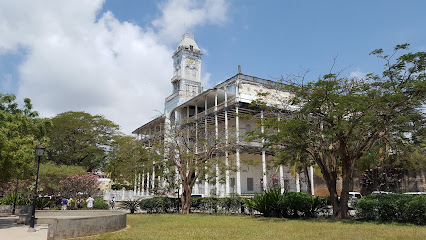
Night Food Market
Discover the vibrant culinary scene at Zanzibar's Night Food Market, where delicious street food meets local culture in a lively atmosphere.
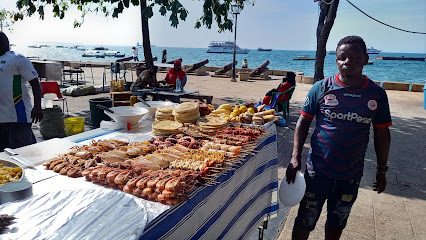
Park
Discover the lush tranquility of Forodhani Park in Stone Town, Zanzibar, where local culture and scenic beauty come together in perfect harmony.
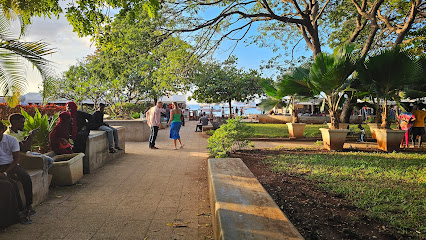
Zanzibar Cannons
Explore the rich maritime history of Zanzibar at Zanzibar Cannons, a museum showcasing antique naval artillery and the island's cultural heritage.
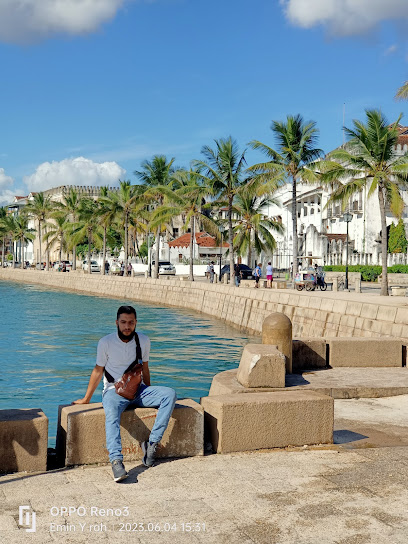
Landscape and taking pictures
Discover the enchanting landscapes of Zanzibar, a photographer's dream filled with stunning views, vibrant culture, and idyllic beaches.
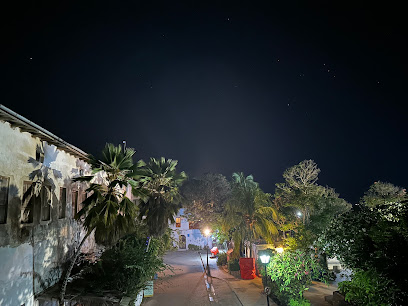
Фордани Парк
Discover the vibrant atmosphere of Forodhani Park in Stone Town, Zanzibar, where culture, cuisine, and history come together in a stunning coastal setting.
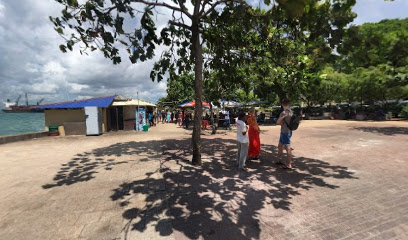
Swahili Food Hotel and Restaurant
Experience the rich flavors of Zanzibar at Swahili Food Hotel and Restaurant, nestled in the scenic Forodhani Garden Park for an unforgettable dining adventure.

Unmissable attractions to see
Jamhuri Gardens
Experience the tranquility of Jamhuri Gardens, a vibrant park in Zanzibar offering lush landscapes, serene walks, and a taste of local life.
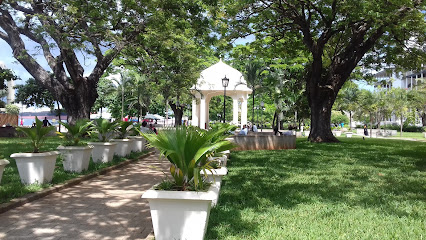
Old Dispensary
Explore the Old Dispensary, a historical landmark in Zanzibar showcasing the island's rich cultural heritage and architectural beauty.
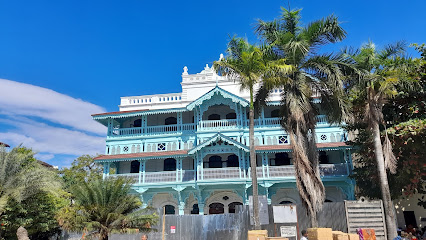
Park
Discover the lush beauty and vibrant culture of Forodhani Park in Zanzibar, where relaxation meets local charm amidst stunning landscapes.
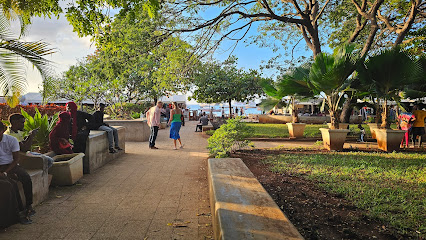
Zanzibar Submarine Tours- Lounge
Discover the mesmerizing underwater world of Zanzibar with Zanzibar Submarine Tours - a unique experience for all ages in the heart of the Indian Ocean.
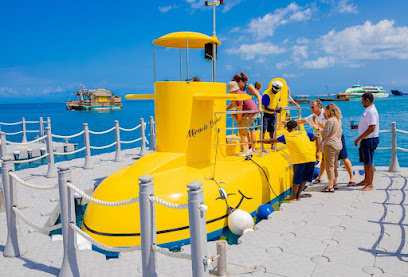
Zanzibar Cannons
Explore the rich maritime history of Zanzibar at the Zanzibar Cannons Museum, showcasing historical artifacts and stunning coastal views.
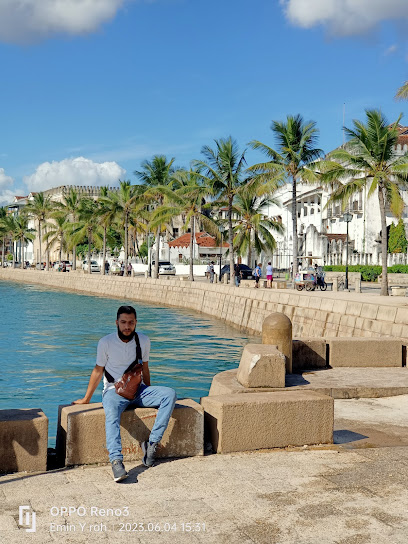
Swahili Food Hotel and Restaurant
Experience the vibrant flavors of Zanzibari cuisine at Swahili Food Hotel and Restaurant, nestled in Forodhani Garden Park, Stone Town.

Essential places to dine
The Silk Route
Discover authentic Indian cuisine at The Silk Route in Zanzibar's historic Stone Town - where flavors meet culture.
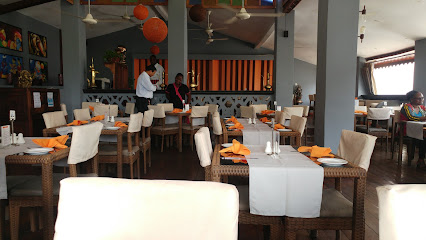
Forodhani Park, Zanzibar
Experience the vibrant flavors of Zanzibar at Forodhani Park – a culinary gem in Stone Town with fresh street food delights.
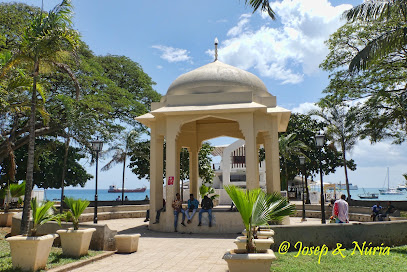
Secret Garden
Experience authentic Zanzibari cuisine in a serene garden setting at Secret Garden – your culinary oasis in Stone Town.
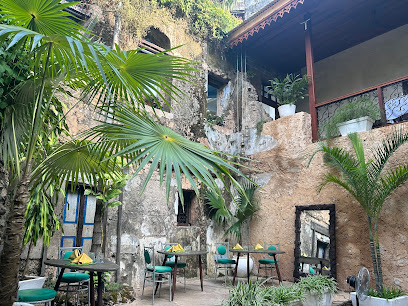
Krishna Food House
Discover authentic vegetarian Indian cuisine at Krishna Food House in Stone Town, Zanzibar – where flavor meets tradition.
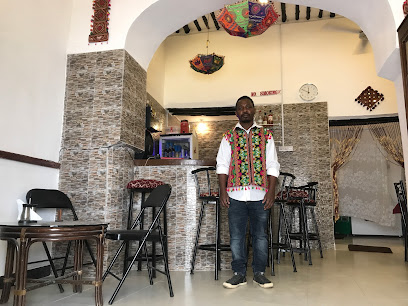
New Monsoon Restaurant
Experience the vibrant flavors of Zanzibar at New Monsoon Restaurant in Forodhani Garden - where local meets global cuisine.
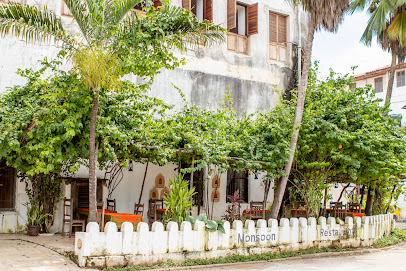
Night Food Market
Explore Zanzibar's culinary scene at the Night Food Market - a vibrant buffet of local flavors under starry skies.
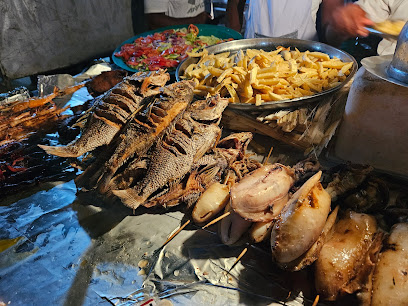
Dolphin Restaurant
Experience authentic Zanzibari flavors at Dolphin Restaurant in Stone Town – where culinary tradition meets vibrant atmosphere.
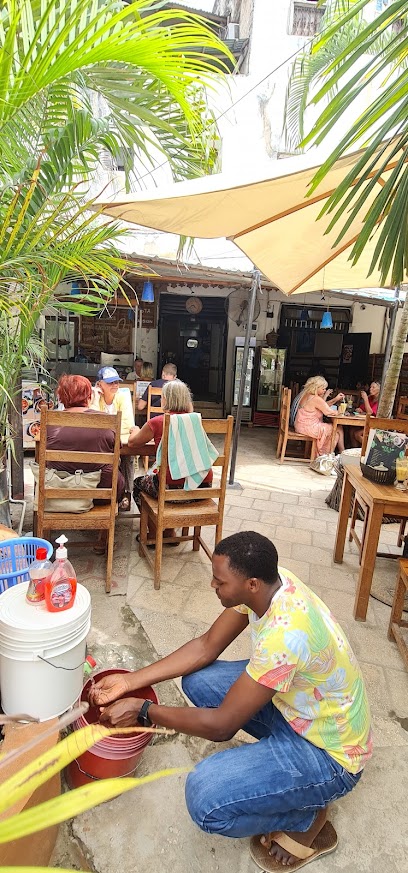
Zanzibar Street Food Market
Experience the vibrant flavors of Zanzibar at its renowned street food market, where barbecue delights and local delicacies await every foodie.
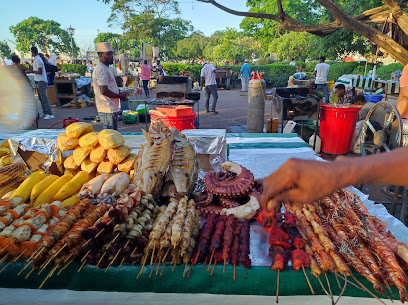
JIKO Garden
Experience authentic Zanzibari cuisine at JIKO Garden - a culinary gem nestled in the heart of Stone Town.
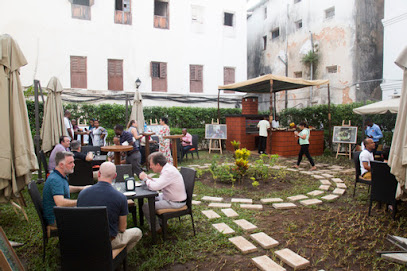
Royal Garden Restaurant
Experience authentic Zanzibari cuisine amidst lush gardens at Royal Garden Restaurant in Stone Town.

Markets, malls and hidden boutiques
Darajani Bazaar
Discover the vibrant heart of Zanzibar at Darajani Bazaar, a sensory delight filled with local produce, crafts, and culture.
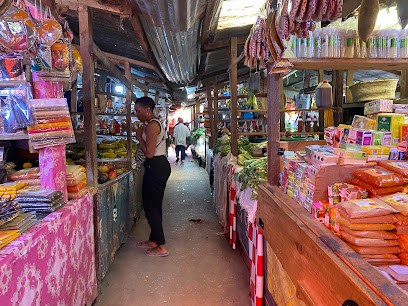
Stone town market
Discover the heart of Zanzibar at the Stone Town Market; a vibrant marketplace filled with local treasures, rich culture, and delicious flavors.
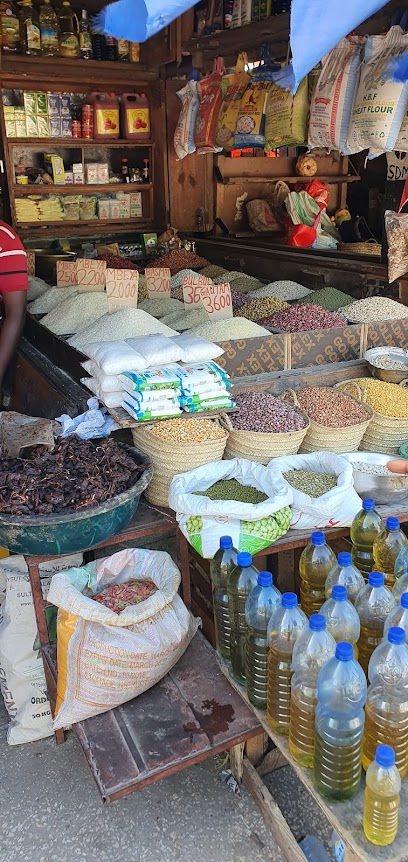
Memories Of Zanzibar
Discover authentic Zanzibari crafts and souvenirs at Memories Of Zanzibar, your gateway to the island's rich culture and artistry.
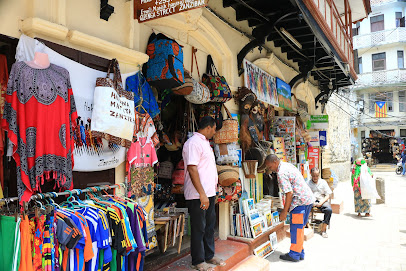
The Zanzibar Curio Shop
Unearth authentic antiques and handcrafted treasures at The Zanzibar Curio Shop in the heart of historic Stone Town.
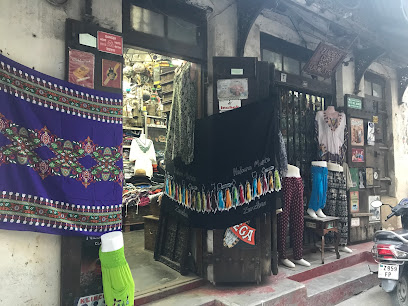
aromas of zanzibar
Explore the vibrant essence of Zanzibar at Aromas of Zanzibar, your go-to destination for unique souvenirs and local treasures.
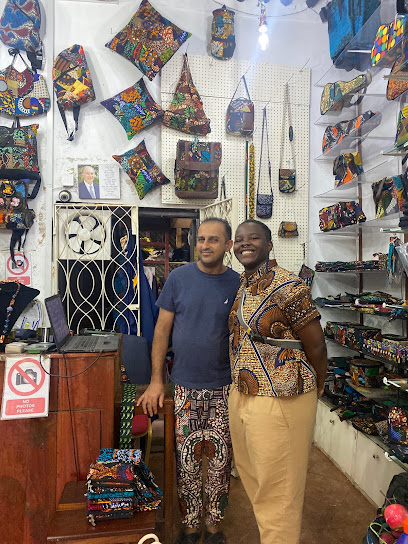
Fadhili Original
Explore the vibrant styles at Fadhili Original, a unique clothing store in Stone Town, Zanzibar, showcasing local artistry and culture.
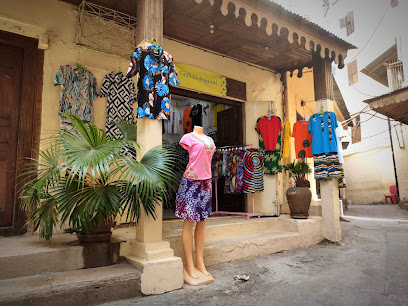
The Coins Shop
Discover unique handcrafted jewelry and artistic treasures at The Coins Shop in Stone Town, a cultural haven for gift shopping and local artistry.
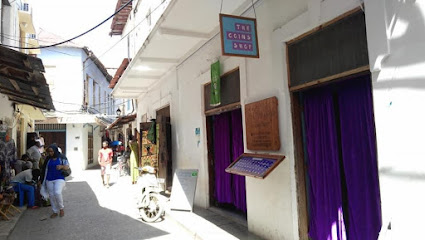
Upendo Womens Store & House
Shop unique women's clothing at Upendo Women's Store & House in Zanzibar's Stone Town and support local artisans.
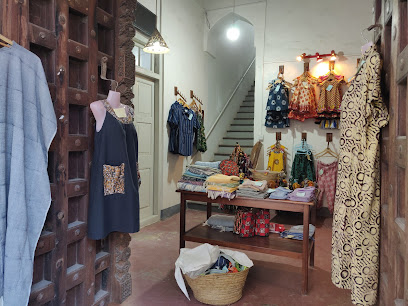
East Africa Merchants Co.
Experience the essence of Zanzibar at East Africa Merchants Co., where jewelry meets local artistry and delicious flavors.
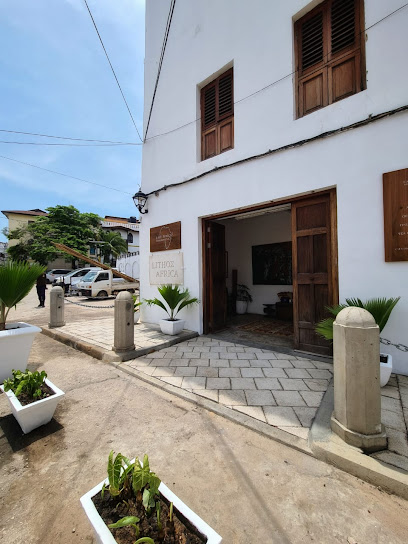
The Wonders Boutique
Uncover the essence of Zanzibar with unique crafts and textiles at The Wonders Boutique, a must-visit shopping destination in Stone Town.
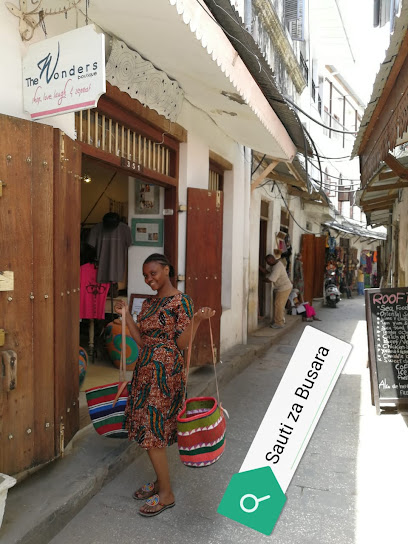
Essential bars & hidden hideouts
Cape Town Fish Market Zanzibar
Experience the best of Zanzibar's seafood at Cape Town Fish Market, where fresh catches and stunning views create unforgettable dining moments.
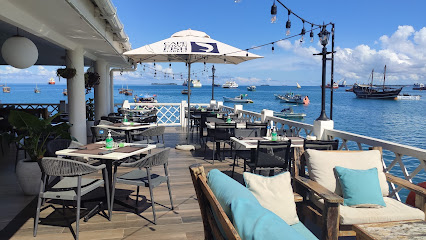
Patamu (Tatu)
Discover the vibrant culinary scene of Zanzibar at Patamu (Tatu), where authentic local dishes meet a lively atmosphere, perfect for every traveler.
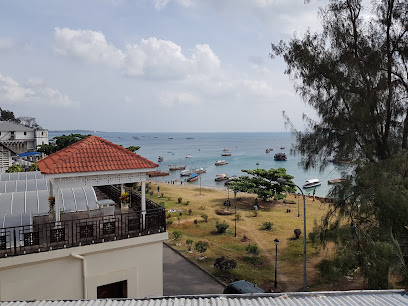
Forodhani Park, Zanzibar
Discover the vibrant flavors and lively atmosphere of Forodhani Park in Zanzibar, where culinary delights meet stunning ocean views.
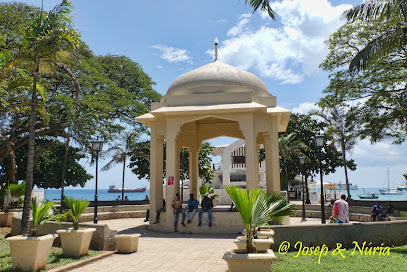
Secret Garden
Discover the rich flavors of Zanzibar in a serene oasis at Secret Garden, the perfect dining experience for every traveler.
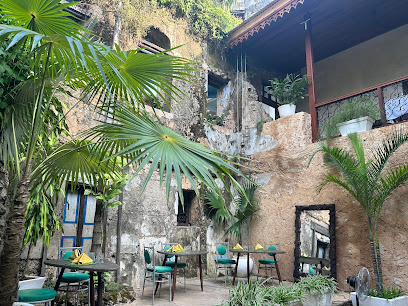
New Monsoon Restaurant
Savor the delightful fusion of local and international cuisine at New Monsoon Restaurant in the heart of Forodhani Garden, Zanzibar.
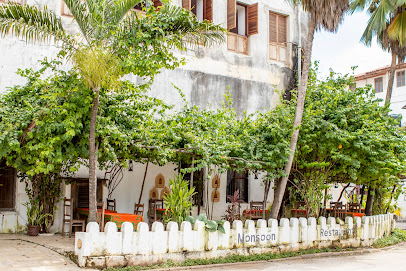
The Sunset Bar - Africa House Hotel
Experience the enchanting atmosphere and delectable flavors at The Sunset Bar in Zanzibar, where every sunset is a breathtaking spectacle.
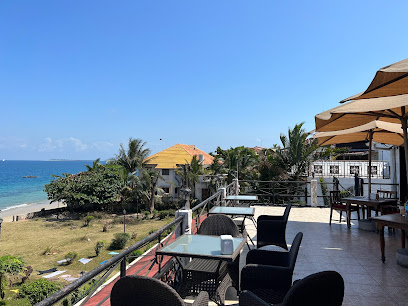
Green Garden Lounge Zanzibar
Experience the best of Zanzibar's culinary scene at Green Garden Lounge, where local flavors meet a serene dining atmosphere.
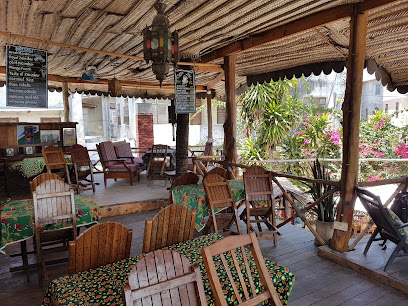
Night Food Market
Experience the vibrant culinary scene at Zanzibar's Night Food Market, where local flavors and a lively atmosphere await every evening.
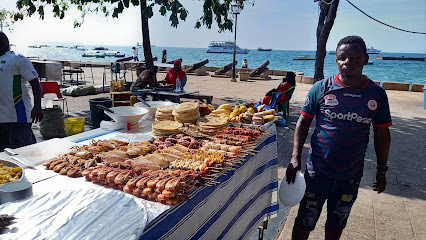
Meeting Point Cafe
Discover the vibrant flavors and stunning views at Meeting Point Cafe in Stone Town, Zanzibar - a perfect blend of culture and cuisine.
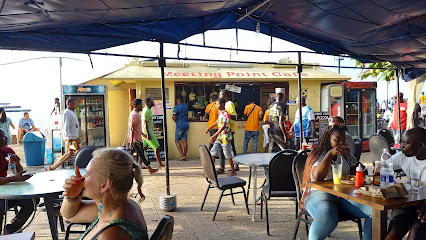
The Rooftop Stone Town
Discover the charm of Zanzibar at The Rooftop Stone Town, a unique homestay offering stunning views and local cultural immersion.
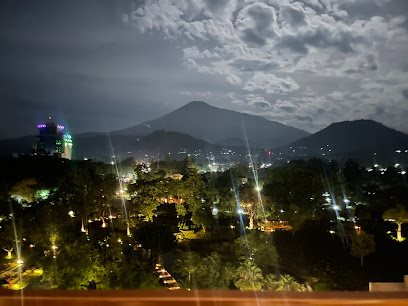
Local Phrases
-
- HelloJambo
[jahm-boh] - GoodbyeKwaheri
[kwah-heh-ree] - YesNdio
[n-dee-oh] - NoHapana
[hah-pah-nah] - Please/You're welcomeTafadhali
[tah-fah-dhah-lee] - Thank youAsante
[ah-sahn-teh] - Excuse me/SorrySamahani
[sah-mah-hah-nee] - How are you?U hali gani?
[oo-hah-lee gah-nee] - Fine. And you?Nzuri. Na wewe?
[n-zoo-ree. nah weh-weh] - Do you speak English?Unazungumza Kiingereza?
[oo-nah-zoo-ngoom-zah kee-een-geh-reh-zah] - I don't understandSielewi
[see-leh-wee]
- HelloJambo
-
- I'd like to see the menu, pleaseNingependa kuona menyu, tafadhali
[nee-ng-eh-pen-dah koo-oh-nah meh-nyoo, tah-fah-dhah-lee] - I don't eat meatSili nyama
[see-lee nyah-mah] - Cheers!Mambo!
[mahm-boh] - I would like to pay, pleaseNingependa kulipa, tafadhali
[nee-ng-eh-pen-dah koo-lee-pah, tah-fah-dhah-lee]
- I'd like to see the menu, pleaseNingependa kuona menyu, tafadhali
-
- Help!Msaada!
[msah-ah-dah] - Go away!Nenda zako!
[nen-dah zah-koh] - Call the Police!Piga polisi!
[pee-gah poh-lee-see] - Call a doctor!Piga daktari!
[pee-gah dahk-tah-ree] - I'm lostNimepotea
[nee-meh-poh-teh-ah] - I'm illNinaumwa
[nee-nah-oom-wah]
- Help!Msaada!
-
- I'd like to buy...Ningependa kununua...
[nee-ng-eh-pen-dah koo-noo-noo-ah] - I'm just lookingNatazama tu
[nah-tah-zah-mah too] - How much is it?Bei ni kiasi gani?
[beh-ee nee kee-ah-see gah-nee] - That's too expensiveHicho ni ghali sana
[hee-choh nee gah-lee sah-nah] - Can you lower the price?Unaweza kupunguza bei?
[oo-nah-weh-zah koo-poong-goo-zah beh-ee]
- I'd like to buy...Ningependa kununua...
-
- What time is it?Saa ngapi?
[sah-ah ngah-pee] - It's one o'clockNi saa moja
[nee sah-ah moh-jah] - Half past (10)Saa kumi na nusu
[sah-ah koo-mee nah noo-soo] - MorningAsubuhi
[ah-soo-boo-hee] - AfternoonMchana
[m-chah-nah] - EveningJioni
[joh-ee-nee] - YesterdayJana
[jah-nah] - TodayLeo
[leh-oh] - TomorrowKesho
[keh-shoh] - 1Moja
[moh-jah] - 2Mbili
[m-bee-lee] - 3Tatu
[tah-too] - 4Nne
[n-neh] - 5Tano
[tah-noh] - 6Sita
[see-tah] - 7Saba
[sah-bah] - 8Nane
[nah-neh] - 9Tisa
[tee-sah] - 10Kumi
[koo-mee]
- What time is it?Saa ngapi?
-
- Where's a/the...?Iko wapi...?
[ee-koh wah-pee] - What's the address?Anwani ni ipi?
[ahn-wah-nee nee ee-pee] - Can you show me (on the map)?Unaweza kunionyesha (kwenye ramani)?
[oo-nah-weh-zah koo-nee-oh-nyeh-shah (kweh-neh rah-mah-nee)] - When's the next (bus)?Basi lijalo litakuwa lini?
[bah-see lee-jah-loh lee-tah-koo-wah lee-nee] - A ticket (to ....)Tiketi (kwenda ....)
[tee-keh-tee (kwehn-dah)]
- Where's a/the...?Iko wapi...?
History of Forodhani Gardens
-
Forodhani Gardens, located along the waterfront of Stone Town, has its roots in the early 19th century when it was initially developed as a public space for the residents of Zanzibar. The gardens were established during a time when the island was a flourishing center for the spice trade and a melting pot of diverse cultures, including Arab, Persian, Indian, and European influences.
-
Throughout the late 19th century, Forodhani Gardens became a crucial hub for trade and commerce. The gardens served as a gathering point for merchants and traders arriving from various parts of the Indian Ocean, including Oman and India, contributing to Stone Town's reputation as a bustling market town. The aroma of spices and the vibrant atmosphere of trade exchanges filled the air.
-
During the late 19th and early 20th centuries, the British colonial administration sought to modernize Stone Town. Forodhani Gardens was transformed into a landscaped park that showcased European gardening styles while still retaining local characteristics. This period saw the construction of nearby colonial buildings that reflected the architectural styles of the time, further enhancing the cultural tapestry of the area.
-
After Zanzibar gained independence in 1963 and subsequently merged with Tanganyika to form Tanzania, Forodhani Gardens experienced a revival as a public space. Efforts were made to restore the gardens and preserve its cultural significance. The gardens became a focal point for community gatherings, cultural events, and social activities, fostering a sense of unity among the diverse local population.
-
In recent decades, Forodhani Gardens has evolved into a renowned culinary destination, especially in the evenings when local vendors set up stalls offering a variety of traditional Zanzibari dishes, including seafood, grilled meats, and the famous Zanzibar pizza. This transformation has not only contributed to the local economy but has also made Forodhani a vibrant cultural exchange point, where locals and tourists alike enjoy the rich flavors and communal atmosphere.
Forodhani Gardens Essentials
-
Forodhani Gardens is centrally located in Stone Town and easily accessible from various neighborhoods. If you're coming from the Zanzibar International Airport, you can take a taxi directly to Forodhani Gardens, which is about 8 kilometers away and takes roughly 20 minutes. If you're staying in other parts of Stone Town, walking is the most enjoyable way to get there, as the area is pedestrian-friendly and rich in historical sights along the way.
-
Forodhani Gardens is best explored on foot due to its compact size and pedestrian-friendly layout. Bicycles can be rented nearby if you're looking for a more active way to explore. However, there are no trains or buses specifically serving Forodhani Gardens; taxis are available for longer distances or if you're venturing into more remote parts of Stone Town.
-
Forodhani Gardens is generally safe for tourists, especially during the day. However, like any tourist area, it’s wise to remain vigilant. Avoid walking alone at night, especially in less populated areas or streets away from the main thoroughfares. Be cautious of your belongings, as petty theft can occur. Areas with higher crime rates include some back alleys off the beaten path, so stick to well-lit and populated routes.
-
In case of an emergency, dial 112 for police assistance or contact the nearest hospital. Forodhani Gardens is close to several medical facilities in Stone Town. It is advisable to have travel insurance to cover medical emergencies. The local police station is also within a short distance should you need to report a crime.
-
Fashion: Do dress modestly, especially when visiting nearby mosques or local neighborhoods. Avoid overly revealing clothing. Religion: Do respect local customs and traditions, particularly during prayer times. Public Transport: Do be polite and courteous on public transport; taxis and buses may be shared with locals. Don't eat or drink on public transport. Greetings: Do greet locals with a friendly smile and a 'Jambo' (hello). Eating & Drinking: Do try local street food at Forodhani Gardens, especially seafood. Don't refuse food offered by locals, as it can be seen as impolite.
-
To experience Forodhani Gardens like a local, visit during the evening when the night market comes alive with food stalls selling grilled seafood, Zanzibari pizza, and sugarcane juice. Engage with local vendors and don't hesitate to ask for recommendations. Try to learn a few words of Swahili; locals appreciate the effort. Additionally, consider joining a guided tour to gain deeper insights into the history and culture of the area.
Nearby Cities to Forodhani Gardens
-
Things To Do in Zanzibar City
-
Things To Do in Dar es Salaam
-
Things To Do in Tanga
-
Things To Do in Morogoro
-
Things To Do in Diani Beach
-
Things To Do in Mombasa
-
Things To Do in Malindi
-
Things To Do in Moshi
-
Things To Do in Dodoma
-
Things To Do in Arusha
-
Things To Do in Iringa
-
Things To Do in Lamu
-
Things To Do in Singida
-
Things To Do in Nairobi
-
Things To Do in Naivasha










